Obsessive Christmas Disorder
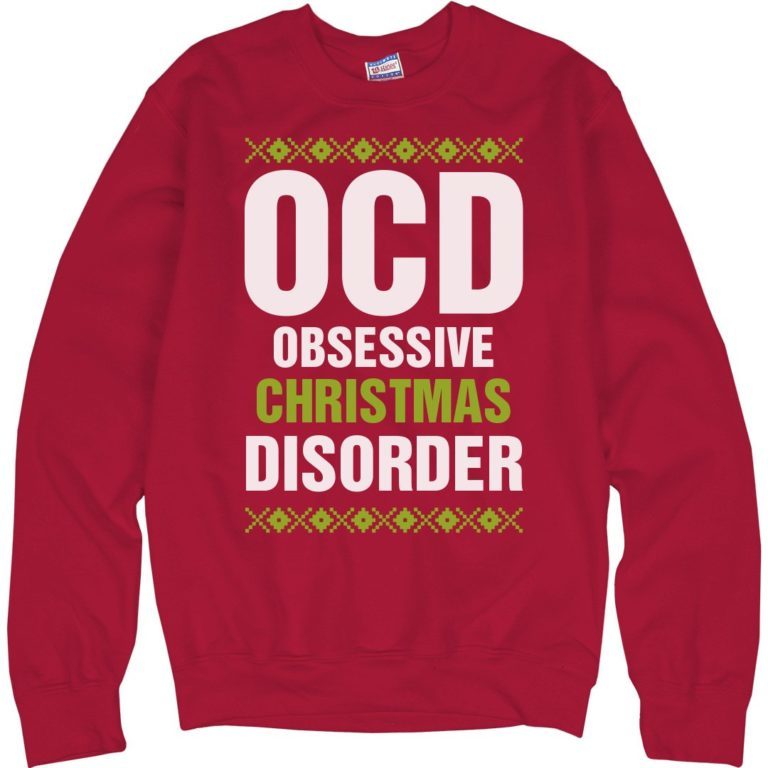
There are a lot of reasons to love Christmas: spending time with family, drinking hot chocolate, making cookies, and taking a much needed vacation from school or work. But liking Christmas? That’s not obsessive, and it’s certainly not a disorder. Decorating a tree, opening presents, making a gingerbread house, and spending time with people you love are all really wonderful things. Pretending OCD is funny or quirky– not so much.
Obsessive Cleaning Disorder
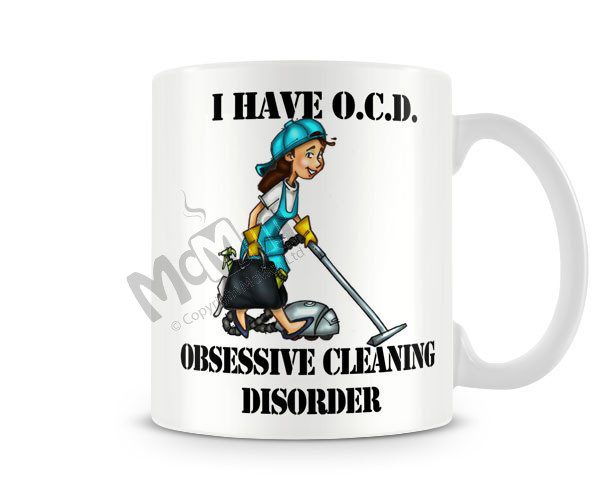
Sure, some people with OCD experience obsessions with cleanliness or contamination, or compulsions involving hand washing or cleaning. But the majority of people with OCD actually suffer primarily from upsetting intrusive thoughts about taboo topics like sexuality and violence. The stereotype that all people with OCD are overly consumed with being clean is inaccurate, and might even prevent people who are experiencing upsetting thoughts from seeking treatment.
Obsessive Corgi Disorder
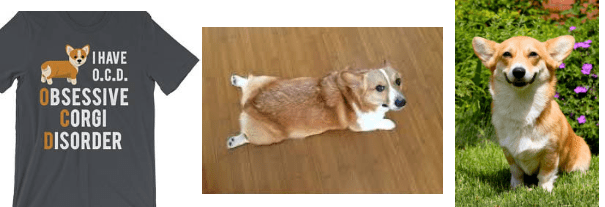
Dogs are the best. And corgis are very cute dogs. Lots of people are obsessed with corgis, because they are 100% good boys/girls and they are great at splooting. I really like corgis, but I can’t think of a single similarity between liking a particularly cute breed of dogs and being constantly plagued by irrational fears. Corgis make you smile. OCD can make you feel unable to go outside, enjoy time with friends, or partake in the things that bring you joy. Like petting corgis.
Obsessive Compulsive Decoupaging Disorder
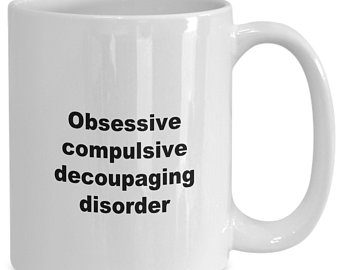
Seriously?? Is it not enough to just enjoy decoupaging?? What even is decoupaging? Why are we talking about it? Just. Decoupage. Without. Buying. This. Mug.
Obsessive Cow Disorder
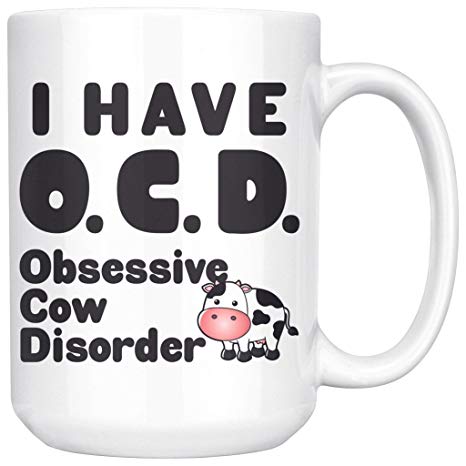
Personally, I find cows smelly and kind of dirty. Not to mention huge contributors to global warming (not their fault, I know). So I may be a little biased when I say I have a hard time understanding how someone could be obsessed with cows in the first place. But I’ll put aside my lack of unconditional love for these ginormous spotted creatures to wonder out loud: is there no better way to express your love for cows than a silly acronym that pokes fun at a debilitating disorder? Is a shirt or mug or poster or billboard in front of your house that says “I REALLY LOVE COWS” not enough?
Obsessive Crawfish Disorder
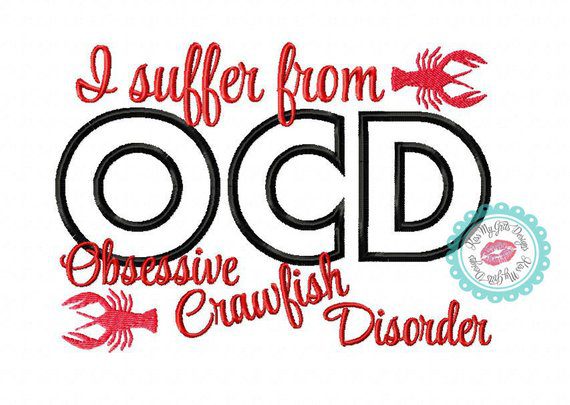
Yeah… I don’t even have anything to say about this one.
Obsessive Coffee Disorder
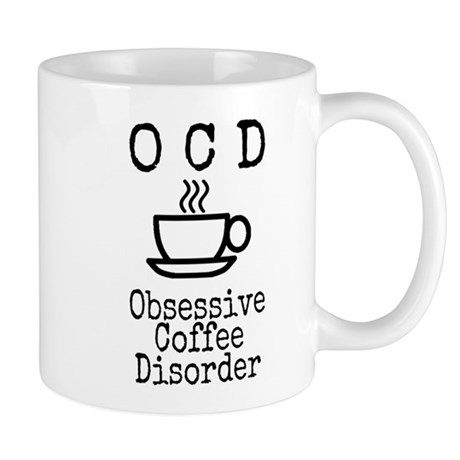
We really like coffee. We wrote a whole article on how coffee isn’t as bad for your mental health as people might think it is, according to recent research. If there were anything on this list that I spend a lot of time of my day thinking about and pursuing, it’d be coffee.
But even the most enthusiastic coffee lovers spend maybe two hours a day with coffee cup in hand, at most. Considering the diagnostic criteria for OCD include up to ?? hours per day focused on obsessions or compulsions, there’s really no parallel. Taking something you really like a lot and comparing it to a disorder characterized by intrusive thoughts that can be disturbing, upsetting, and against one’s values, is kind of absurd.
Obsessive Cat Disorder
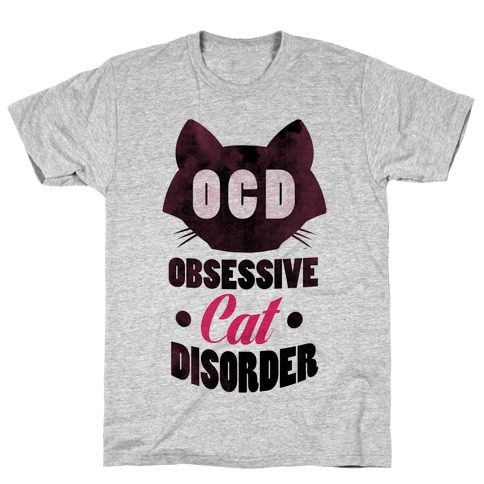
Whether you’re a cat person or a dog person, I think we can all agree: cats have nothing to do with an OCD diagnosis.
Obsessive Crochet Disorder, Obsessive Cycling Disorder….
More objects that pretend OCD means really liking something a lot. If OCD makes you check the lock on your front door over and over again, it’s not because you really love locks. It’s probably because you’re deeply afraid of something and OCD has convinced you that checking the lock will prevent that thing from happening. Liking something has nothing do with the onset of an obsession!
Obsessive Compulsive Action Figure
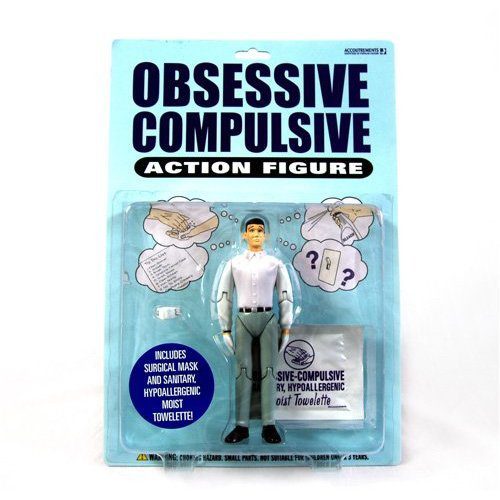
The stereotype of a super clean, neurotic person who can’t shake hands for fear of getting dirty encapsulates just one type of OCD. This sort of image also contributes to society’s misunderstanding of OCD as a “hypochondriac” disorder that only a certain type of person has. The reality is, lots of people you’d never expect to have OCD do indeed suffer from the disorder. Some people with severe OCD keep their homes really messy, and cleanliness has nothing to do with their obsessions. The majority of people with OCD probably suffer in silence– and in secret.
The goal isn’t to scold people for making these flippant comparisons. It’s to remind us all that tons of people with OCD suffer for a lot longer than they need to because they don’t– or aren’t able to– get help. Inaccurate stereotypes of OCD make it even harder for people who don’t “seem OCD” to seek help, or even know they need it.
Really liking something doesn’t mean you have a disorder. To meet more people who don’t throw OCD around like a funny acronym, join the NOCD Community in our mobile app.
What’s the strangest OCD riff you’ve seen? Let us know on Facebook, Twitter, or Instagram @treatmyocd. And be sure to share this post with anyone who might find it helpful!
If you or someone you know is struggling with OCD, schedule a free call today with the NOCD clinical team to learn more about how a licensed therapist can help. ERP is most effective when the therapist conducting the treatment has experience with OCD and training in ERP. At NOCD, all therapists specialize in OCD and receive ERP-specific training.

